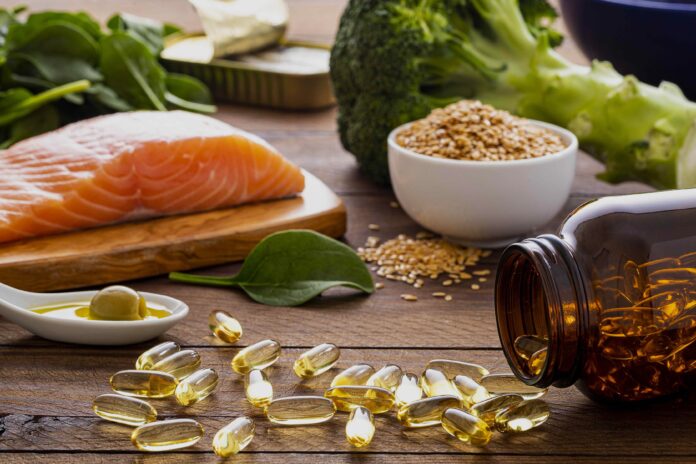Omega-3 fatty acids are crucial for maintaining good health, playing a key role in heart function and reducing inflammation. While salmon is a well-known source of these essential fats (delivering 1.24 grams of DHA and 0.59 grams of EPA per 3-ounce serving), many other convenient, shelf-stable options can help you meet your daily omega-3 needs. Here’s a look at seven alternatives that are easy to keep stocked in your pantry.
1. Cod Liver Oil: A Concentrated Boost
Cod liver oil stands out as a highly concentrated source of omega-3s, offering 1.5 grams of DHA and 0.938 grams of EPA per tablespoon. Regular consumption has been linked to reduced inflammation (measured by C-reactive protein levels) and improved cholesterol.
Beyond omega-3s, cod liver oil is rich in vitamin A (supporting immune function, vision, and cognitive health) and vitamin D (essential for immunity, bone strength, and muscle function). Always consult a healthcare professional for optimal dosing.
2. Sardines: Small Fish, Big Benefits
Sardines provide a similar omega-3 profile to salmon, with 0.74 grams of DHA and 0.45 grams of EPA per 3-ounce serving. Including sardines regularly in your diet may even reduce the need for separate omega-3 supplements.
These small fish are also packed with protein, calcium, potassium, magnesium, iron, and zinc. Importantly, sardines tend to accumulate less mercury than larger fish due to their shorter lifespans and lower position in the food chain. Canned sardines offer convenience, easily added to salads, sandwiches, or enjoyed with crackers.
3. Anchovies: A Powerful Punch in a Tiny Package
Anchovies are surprisingly rich in omega-3s, delivering 1.09 grams of DHA and 0.648 grams of EPA per 3-ounce serving. They also provide essential vitamins and minerals like calcium, iron, and selenium, including iodine, which is vital for thyroid hormone production (regulating metabolism, energy, and growth).
Enjoy anchovies in pasta dishes, salads, or even straight from the can on toast for a protein-packed snack. Opt for wild-caught or sustainably sourced varieties packed in oil or water.
4. Omega-3 Supplements: The Reliable Alternative
Omega-3 supplements are a dependable, shelf-stable option, typically providing 500–2,000 milligrams of combined EPA and DHA per serving. Health organizations generally recommend 250–500 mg of combined EPA and DHA daily for adults. Supplements are ideal for those who dislike seafood but still want to ensure adequate omega-3 intake.
5. Caviar: A Luxurious Omega-3 Source
Caviar, though pricier, is a convenient and shelf-stable source of omega-3s. Two tablespoons provide 1.2 grams of DHA and 0.88 grams of EPA—even more concentrated than salmon. It’s also rich in vitamin B12 (supporting neurological function and DNA synthesis) and choline (critical for neurotransmitter production and brain development).
Enjoy caviar on crackers, blinis, or as part of a cheese and snack platter.
6. Flax Oil: The Plant-Based Powerhouse
Flaxseed oil is the richest plant-based source of alpha-linolenic acid (ALA), with 7.26 grams per tablespoon. ALA offers anti-inflammatory benefits and may help lower the risk of heart disease. Note: flaxseed oil is not suitable for cooking; use it as a supplement or finishing oil for salads and grain bowls.
7. Chia Seeds: Fiber and Omega-3s Combined
Chia seeds are highly nutritious, providing 5.06 grams of ALA per 1-ounce serving, along with fiber, magnesium, selenium, and zinc. Unlike animal sources, chia seeds deliver fiber, which supports gut health by promoting the growth of beneficial bacteria. They also contribute to healthy blood sugar and blood pressure levels through their magnesium content.
Mix chia seeds into oatmeal, baked goods, or create a quick chia pudding for breakfast.
In conclusion, if you’re looking for omega-3 alternatives to salmon, a variety of shelf-stable options exist, from concentrated oils to convenient canned fish and plant-based seeds. These alternatives provide comparable benefits and offer flexibility for those seeking accessible and long-lasting omega-3 sources.




















